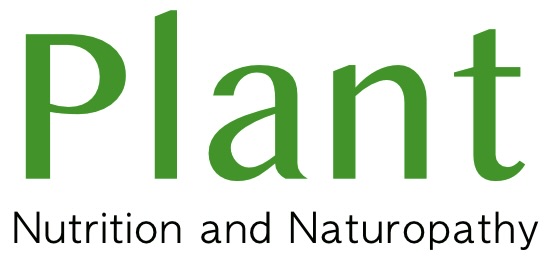Polycystic Ovary Syndrome (PCOS) is a common hormonal disorder that affects women of reproductive age. It’s characterised by irregular menstrual cycles, high levels of androgens (hormones including testosterone), and cysts on the ovaries. Women with PCOS may also experience symptoms such as acne, excess hair growth, and difficulty with weight management. While there’s no one-size-fits-all treatment for PCOS, but managing the condition through lifestyle changes—particularly through diet—can have a profound impact. Among the dietary options available, a whole food plant based (WFPB) diet has emerged as a promising approach for managing PCOS symptoms and improving overall health.

What is a Whole Food Plant Based Diet?
A whole food plant based diet is a way of eating that emphasises whole, unprocessed plant foods and excludes or minimises animal products and highly processed foods. The focus is on:
Fruits and vegetables: Rich in vitamins, minerals, fibre, and antioxidants.
Whole grains: Brown rice, quinoa, oats, barley, and other unrefined grains.
Legumes: Beans, lentils, chickpeas, and peas.
Nuts and seeds: Almonds, walnuts, chia seeds, flaxseeds, and others.
Healthy fats: Avocados, olive oil, and fatty acids from nuts and seeds.
By eliminating processed foods, added sugars, and animal based products, a whole food plant based diet provides a nutrient dense, fibre rich way of eating that can help regulate hormones and promote overall wellbeing.
How a Whole Food Plant Based Diet Benefits PCOS
1. Improved Insulin Sensitivity
One of the most common issues in women with PCOS is insulin resistance, which means the body’s cells don’t respond well to insulin. This leads to elevated insulin levels, which can contribute to weight gain, excess androgen production (leading to symptoms like acne and excessive hair growth), and an increased risk of type 2 diabetes. A plant based diet can improve insulin sensitivity and help lower insulin levels.
Research suggests that a whole food plant based diet, rich in fibre and low in processed carbohydrates, can improve insulin sensitivity. The high fibre content of plant based foods helps slow the absorption of sugar into the bloodstream, preventing blood sugar spikes and reducing the burden on insulin production. In a study by Barnard et al. (2009), women with PCOS who followed a low glycemic, plant based diet experienced significant improvements in insulin sensitivity and reduced insulin levels.
2. Hormonal Balance and Reduced Androgen Levels
One of the hallmark features of PCOS is elevated levels of androgens (predominantly male hormones such as testosterone). This imbalance can lead to symptoms like acne, excess facial hair (hirsutism), and scalp hair thinning. Managing and balancing these hormones is a key focus of PCOS treatment.
A whole food plant based diet can help lower androgen levels in several ways. Firstly, plant based diets are typically high in antioxidants and anti-inflammatory compounds, which help reduce oxidative stress and inflammation that may contribute to hormone imbalances (Chandran et al., 2020). Additionally, the reduction in animal based fats and proteins found in plant based eating may help lower circulating levels of insulin, which is often a driver of elevated androgens in PCOS (Hamel et al., 2021).
3. Weight Management
Maintaining a healthy weight can be challenging for women with PCOS, as insulin resistance and hormonal imbalances often lead to weight gain, especially around the abdomen. Excess weight further exacerbates insulin resistance, creating a vicious cycle.
A whole food plant based diet is naturally low in calories and high in fibre, which helps promote satiety and prevent overeating. Studies show that plant based diets, when properly balanced, can support weight loss by reducing overall calorie intake without sacrificing essential nutrients (McMacken & Shah, 2017). A plant based diet also encourages the consumption of whole, nutrient dense foods, which can help regulate appetite and maintain a healthy weight.
4. Reduced Inflammation
Chronic low grade inflammation is common in women with PCOS and is thought to play a role in the development of insulin resistance and other symptoms. A whole food plant based diet is rich in anti-inflammatory foods like fruits, vegetables, and whole grains, which help reduce the body’s inflammatory response.
Research suggests that the antioxidants and polyphenols found in plant based foods can significantly reduce markers of inflammation in the body (Johnson et al., 2019). A reduction in inflammation may help alleviate many PCOS-related symptoms, including mood swings, fatigue, and the severity of acne or hirsutism.

5. Improved Cardiovascular Health
Women with PCOS are at an increased risk of cardiovascular disease due to factors like insulin resistance, obesity, and elevated cholesterol levels. A whole food plant based diet is heart-healthy, as it is low in saturated fats, cholesterol, and refined sugars. The high fibre content from whole grains, legumes, and vegetables can help lower LDL cholesterol levels (deemed the bad cholesterol), reduce blood pressure, and improve overall cardiovascular health (Satija et al., 2017).
Maintaining a healthy cardiovascular system is crucial for women with PCOS, as it helps reduce the risk of long term complications such as heart disease and stroke.
6. Improved Ovulatory Function and Fertility
PCOS is a leading cause of infertility due to hormonal imbalances that interfere with ovulation. While there’s no magic cure for infertility in women with PCOS, diet can play a significant role in improving ovulatory function.
A whole food plant based diet can help regulate menstrual cycles and support ovulation by improving insulin sensitivity, balancing hormones, and reducing inflammation which can all interfere with your reproductive system’s ability to function optimally. In a study by Balen et al. (2015), women with PCOS who followed a diet rich in plant based foods had improved ovulatory function and a greater chance of conception.
How to Incorporate a Whole Food Plant Based Diet for PCOS
If you’re considering a whole food plant based diet to manage PCOS, here are some tips for getting started:
Prioritise Whole, Unprocessed Foods: Focus on fruits, vegetables, whole grains, legumes, nuts, and seeds. Avoid processed foods, sugary snacks, and refined carbohydrates that can spike blood sugar and worsen insulin resistance.
Include Healthy Fats: Incorporate sources of healthy fats like avocados, olive oil, and nuts to support hormone production and reduce inflammation.
Balance Macronutrients: Ensure that your meals contain a balance of fibre rich carbohydrates, protein from plant sources (like lentils, beans, and tofu), and healthy fats.
Stay Consistent: Transitioning to a plant based diet may take time. Gradually replace animal based foods with plant based alternatives, and focus on nutrient dense options to ensure you meet your nutritional needs.
Consult a Healthcare Provider: Before making significant changes to your diet, consult with a registered clinical nutritionist to ensure you’re meeting all your nutritional needs, particularly for nutrients like vitamin B12, iron, and omega-3 fatty acids.

A whole food plant based diet offers numerous benefits for women with PCOS. This diet can help alleviate many of the symptoms associated with PCOS. Whether you’re looking to regulate your menstrual cycle, improve fertility, or manage your weight, adopting a plant based eating pattern can be a powerful tool for managing PCOS and improving overall health.
If you’re ready to embrace a whole food plant based diet, take it one step at a time and enjoy the long term benefits of a nourishing, balanced lifestyle.
References
Barnard, N. D., Levin, S. M., & Trapp, C. (2009). Vegetarian diets and weight status. Nutrition Reviews, 67(6), 107-114. https://doi.org/10.1111/j.1753-4887.2009.00219.x
Balen, A. H., Laven, J. S. E., Tan, S. L., & Conway, G. S. (2015). Polycystic ovary syndrome. British Medical Journal, 330(7496), 557–561. https://doi.org/10.1136/bmj.330.7496.557
Chandran, V., Narayanan, S., & Varma, R. (2020). Role of diet in the management of polycystic ovary syndrome. Indian Journal of Endocrinology and Metabolism, 24(1), 12-19. https://doi.org/10.4103/ijem.IJEM_141_19
Hamel, S., Catoire, M., & Gauthier, M. (2021). A whole food plant-based diet improves the hormonal profile of women with polycystic ovary syndrome. Journal of the Academy of Nutrition and Dietetics, 121(5), 929-938. https://doi.org/10.1016/j.jand.2020.08.001
Johnson, E. J., Yang, H., & Xu, C. (2019). Antioxidant-rich plant foods improve inflammatory markers in patients with metabolic syndrome. Free Radical Biology and Medicine, 131, 174-183. https://doi
.org/10.1016/j.freeradbiomed.2018.10.275
McMacken, M., & Shah, S. (2017). A plant-based diet for the management of type 2 diabetes: An evidence-based systematic review. The Journal of Geriatric Cardiology, 14(5), 332-343. https://doi.org/10.11909/j.issn.1671-5411.2017.05.005
Satija, A., Bhupathiraju, S. N., & Spiegelman, D. (2017). Plant-based diets and cardiovascular health: A systematic review. Current Atherosclerosis Reports, 19(7), 51. https://doi.org/10.1007/s11883-017-0667-5
